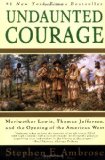The Iliad (Penguin Classics Deluxe Edition) by Homer
March 24, 2008
 What is this story? Timeless themes tangled in archaic notions that try the patience, but then wild and rhythmic passages that would hold up against any great poet of the modern age. It’s a conundrum. At times so difficult I feared I wouldn’t be able to pound through it, at other times stealing nights away until 4 a.m., full maddening fevered reading that left me nervy and with the chants of Greek names going through my dreams.
What is this story? Timeless themes tangled in archaic notions that try the patience, but then wild and rhythmic passages that would hold up against any great poet of the modern age. It’s a conundrum. At times so difficult I feared I wouldn’t be able to pound through it, at other times stealing nights away until 4 a.m., full maddening fevered reading that left me nervy and with the chants of Greek names going through my dreams.
My relationship to The Iliad is far different to my late-summer, torpid tale-spinning romance with The Odyssey. It’s full of things that sit funny with me: Achilles, the anti-heroic hero, spiteful, vengeful, unmoved; Zeus, tyrant yet yielding; Athena, a mysteriously fierce female in a time of spurned and maligned women.
The span of events is peculiar. We see neither the actions and consequences that launched the Achaean onslaught of Troy, nor do we get to hear the legends of Troy’s end (i.e. Trojan Horse) or Achilles downfall (Paris’ winged arrow to the ankle). It’s assumed we already know that.
In fact, you go in already knowing everything. The weight of fate, and the way the characters–knowing full well how things are going to come out–respond is the source of the pathos. Achilles: winding tighter in rage as his days are numbered; the gods batting at Achaeans like bored housecats though they know ultimate victory goes against Troy. Yes, the petty spats of the gods echoing out in massacre of mortals and changing tides of gruesome war. Gore and detailed guts. Rhythm. Ritual. Timelessness.
As an aside: the Fagles translation is wonderful. Recommended.
***1/2 (out of *****)
One Comment
Recently Reviewed
Get the Books
Read my Reviews
Related Posts
- Book Review: "The Aeneid" by Virgil (Robert Fagles, trans.)
September 23, 2008 - "Homer's The Iliad and The Odyssey [...]" by Alberto Manguel
April 1, 2008 - O! Sad Day
April 1, 2008 - Book Review: "The Three Theban Plays" by Sophocles (trans. Robert Fagles)
May 29, 2008 - Book Review: “Histories” by Herodotus (Landmark)
January 3, 2010




[...] The Iliad, Homer — Robert Fagles is my favorite translation. My review. [...]